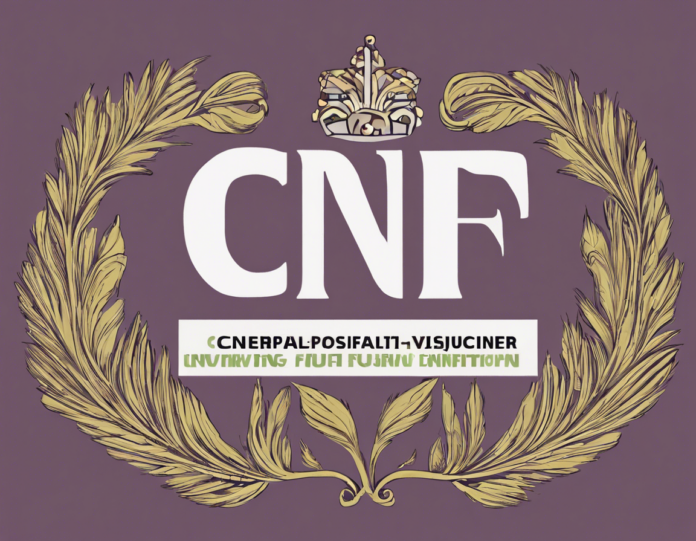Decoding CNF: What Does CNF Stand For?
If you work in a field that involves logic, mathematics, or computer science, you may have come across the term CNF. CNF stands for Conjunctive Normal Form, which is a specific way of representing logical expressions in propositional logic. In this article, we will delve into the meaning of CNF, its significance, how it is used, and its importance in various fields.
Understanding CNF
In the realm of formal logic, a logical expression can be represented in various forms. CNF is one such standard form that is widely used due to its simplicity and ease of manipulation. A logical expression in Conjunctive Normal Form consists of a conjunction (logical AND) of one or more clauses, where each clause is a disjunction (logical OR) of one or more literals.
For example, the logical expression (A OR B) AND (NOT B OR C) can be represented in CNF as (A OR B) ^ (NOT B OR C), where ^ represents the logical AND operation.
Significance of CNF
CNF holds significant importance in various areas, such as automated theorem proving, logic circuit design, artificial intelligence, and satisfiability testing. When a logical expression is converted to CNF, it becomes easier to analyze, manipulate, and apply various logical rules and operations on it.
In automated theorem proving, converting a logical expression to CNF helps in applying resolution refutation for proving the validity of arguments. In logic circuit design, representing logical expressions in CNF helps in simplifying the circuit and optimizing its performance. In artificial intelligence, CNF is used in knowledge representation and reasoning tasks.
Converting to CNF
Converting a logical expression to CNF involves applying various rules and techniques to transform it into the desired form. The process may include steps such as removing implications, applying De Morgan’s laws, eliminating double negations, distributing OR over AND, and standardizing variables. By following these steps systematically, a logical expression can be effectively converted into CNF.
Applications of CNF
The use of CNF extends to a wide range of applications across different domains. In computer science, CNF plays a crucial role in formal verification, compiler design, model checking, and constraint satisfaction problems. In mathematics, CNF is utilized in logic puzzles, boolean algebra, and theorem proving.
Importance of CNF in Practical Scenarios
In real-world scenarios, understanding CNF and its applications can lead to efficient problem-solving strategies and improved decision-making processes. By representing problems in CNF, complex issues can be simplified and analyzed with clarity. Moreover, the use of CNF in automated reasoning systems and theorem provers enhances the capabilities of intelligent systems in handling logical tasks.
FAQs about CNF
- What is the difference between CNF and DNF?
-
CNF represents a logical expression as a conjunction of clauses, while DNF (Disjunctive Normal Form) represents it as a disjunction of terms.
-
How is CNF different from SOP and POS forms?
-
SOP (Sum of Products) and POS (Product of Sums) are used in boolean algebra, whereas CNF is specifically used in propositional logic to represent logical expressions.
-
Can every logical expression be converted to CNF?
-
Yes, every logical expression in propositional logic can be systematically converted to CNF using established transformation rules.
-
What is the role of CNF in satisfiability testing?
-
CNF is extensively used in satisfiability testing (SAT) to check the satisfiability of logical formulas. SAT solvers employ CNF representations for efficient solving of boolean satisfiability problems.
-
How does CNF simplify logical expressions?
- By converting a logical expression to CNF, redundancies can be eliminated, and the expression can be represented in a structured form that aids in applying logical rules and operations effectively.
In conclusion, CNF serves as a fundamental concept in logic and mathematics, offering a standardized form for representing logical expressions. Its simplicity, applicability, and significance make it an essential tool in various fields, enabling efficient problem-solving, logical reasoning, and automated decision-making processes. Understanding CNF and its implications can enhance one’s ability to navigate complex logical tasks and advance in the realm of formal logic and reasoning.









